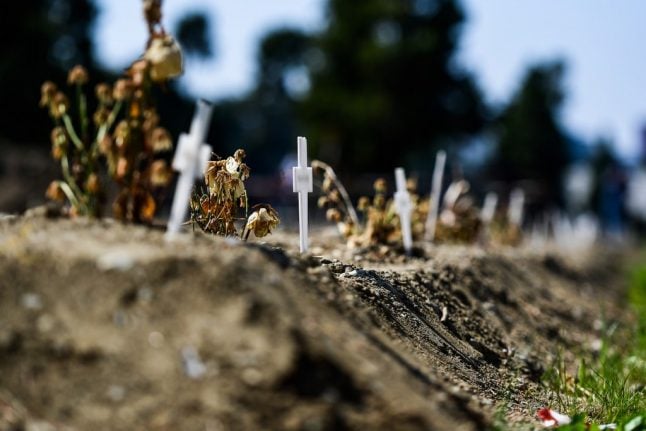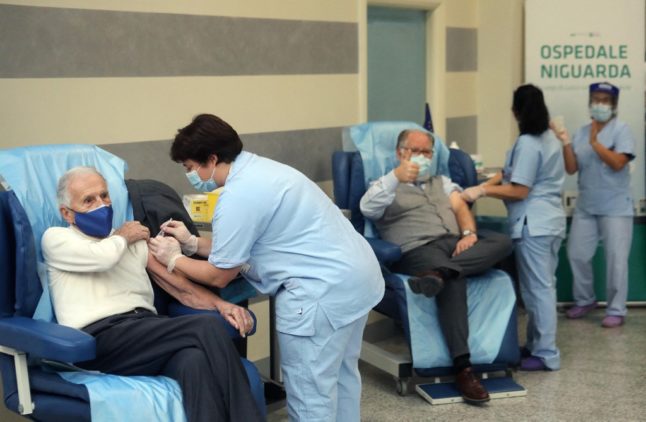With rows of small white crosses lining bulldozed trenches to receive the dead, Deputy Mayor Roberta Cocco stressed that the plot of land northwest of Italy's commercial capital is not a mass grave.
Nearly 13,000 people have already died of the virus in Lombardy, whose capital is Milan – more than half of Italy's total of over 25,000.
“This is not at all a mass grave, this is an area completely devoted tothese people who unfortunately were dead without any relatives around,” Cocco told journalists as the first 61 victims were laid to rest at the Musocco cemetery.

As the death toll in virus epicentre Lombardy rose and with morgues threatening to be overwhelmed, Milan decided to reduce the amount of time relatives had to claim a body from 30 days to five.
“Here we have 61 people who died during this terrible period, each of them has a specific name and has a cross just to be sure that they are recognisable,” said Cocco.
“This doesn't mean that they do not have parents or family, this simply means that in this specific period after five days of the death we didn't receive any communication about what to do with this person.”
Relatives who may not have been able to claim bodies because of tough quarantine restrictions or because they themselves were sick will be able to move their loved ones after two years “for sanitary reasons”, said Cocco.
The designated areas has room for up to 600 unclaimed bodies, though authorities hope they will not use all of the space.




 Please whitelist us to continue reading.
Please whitelist us to continue reading.
Member comments